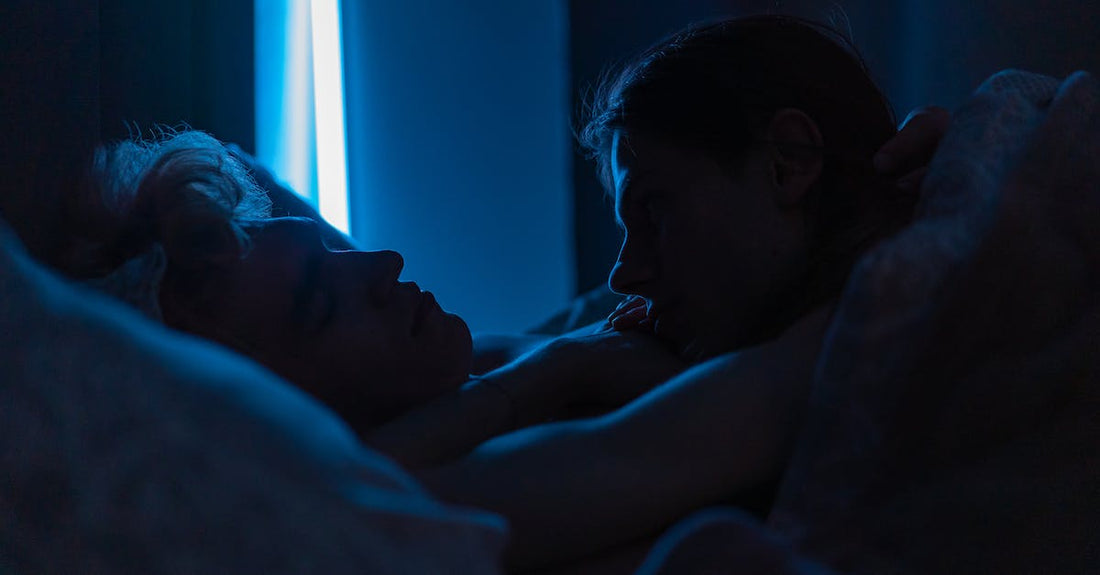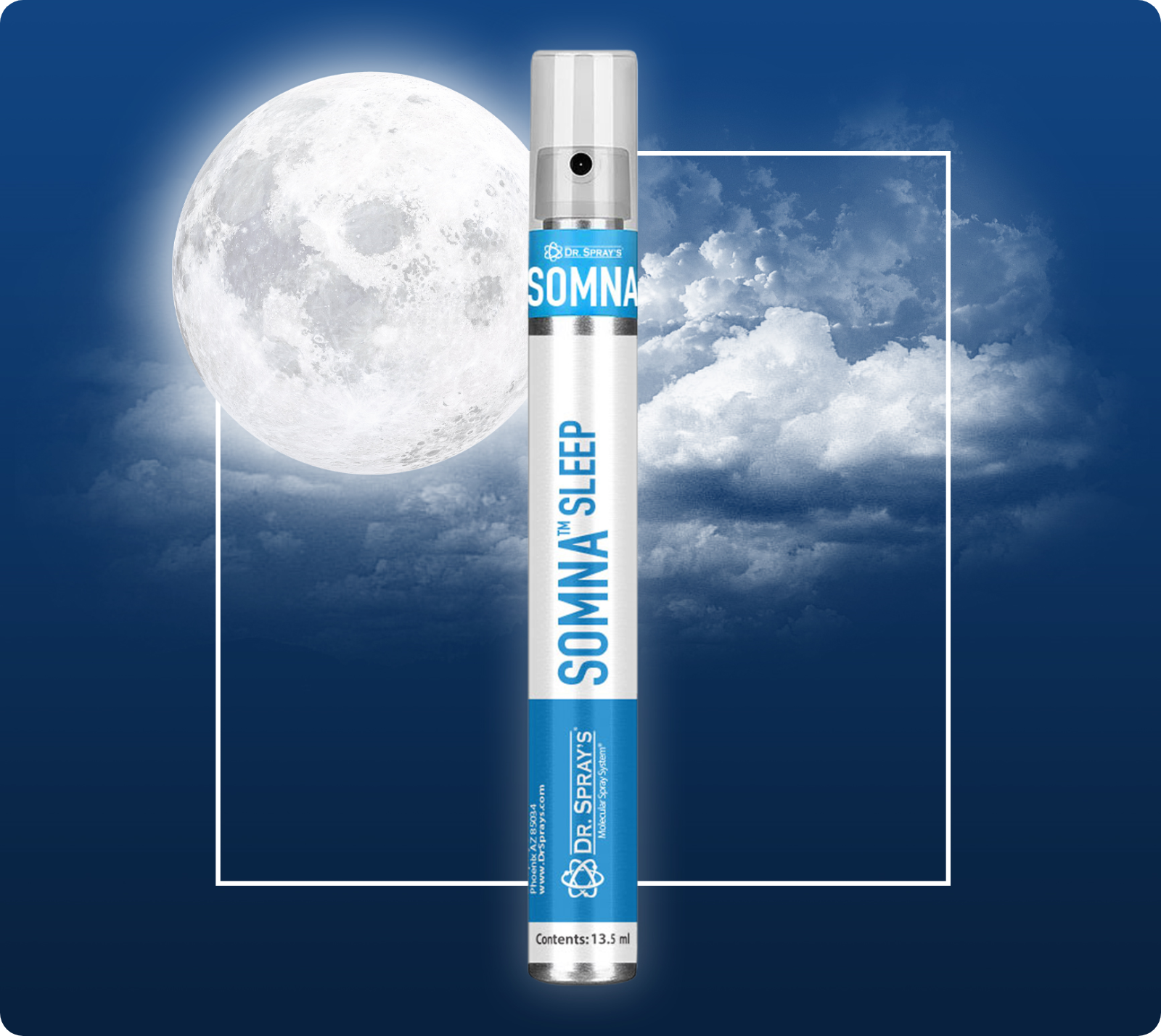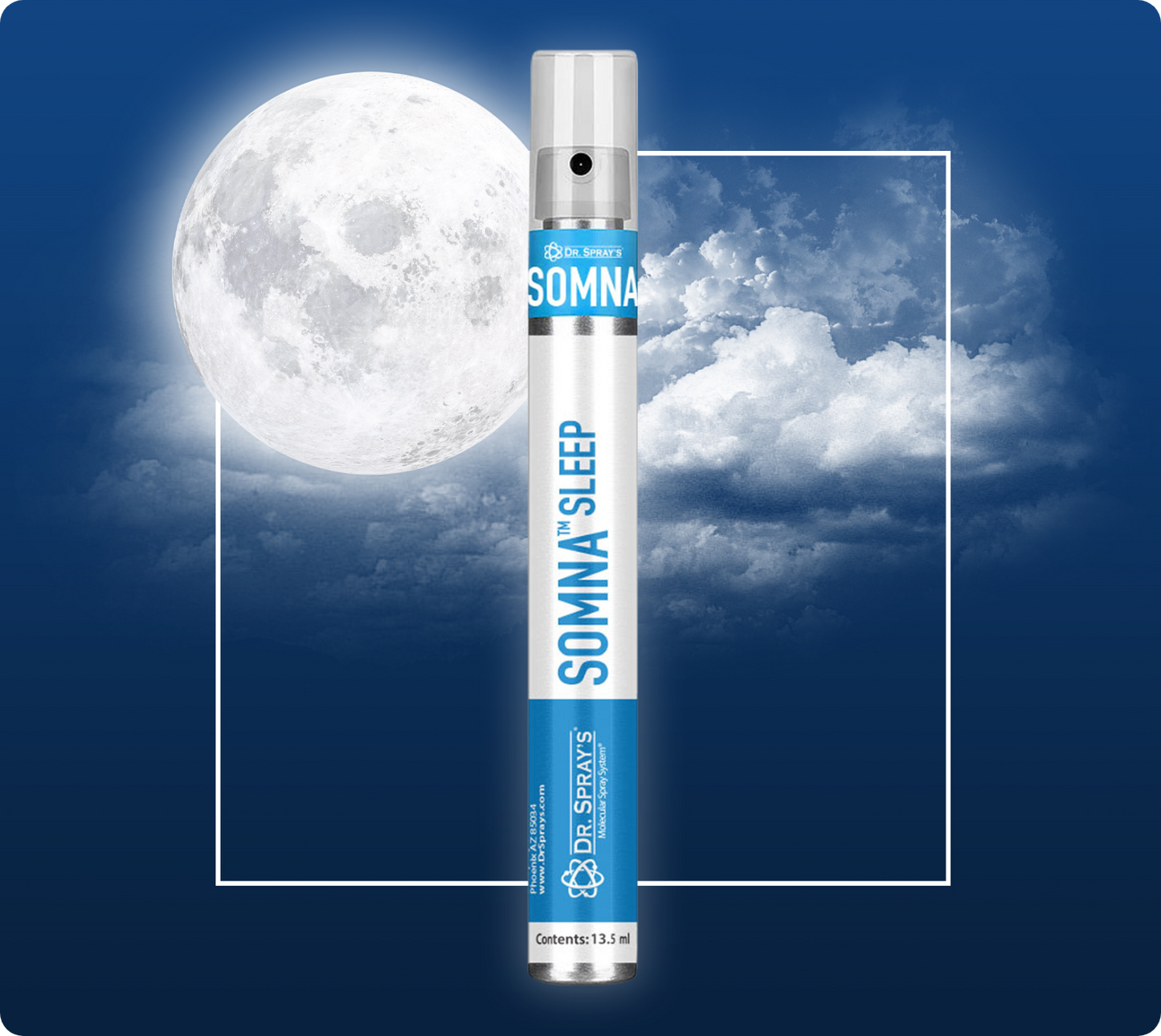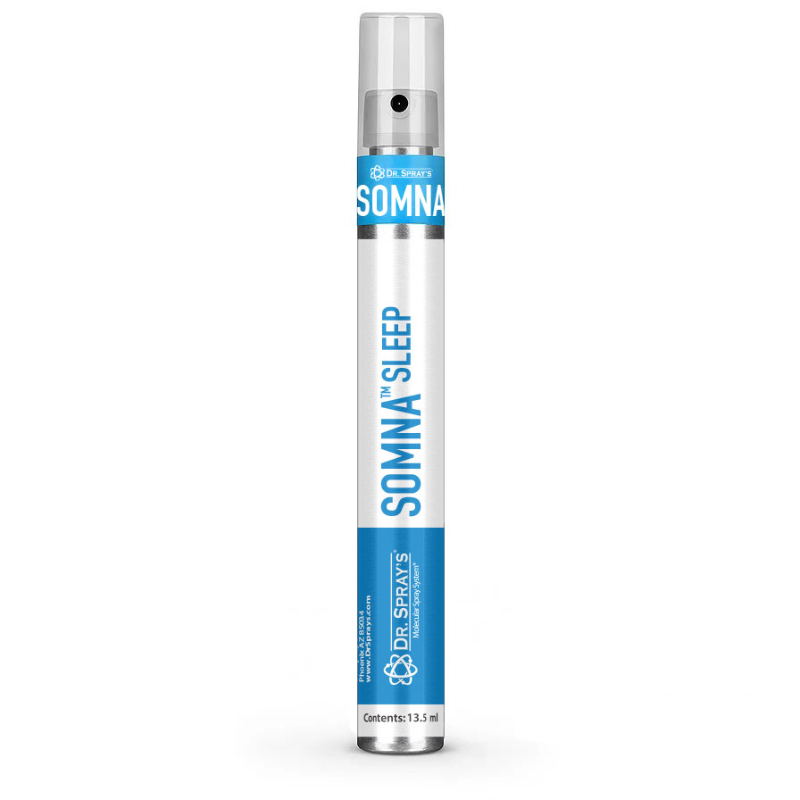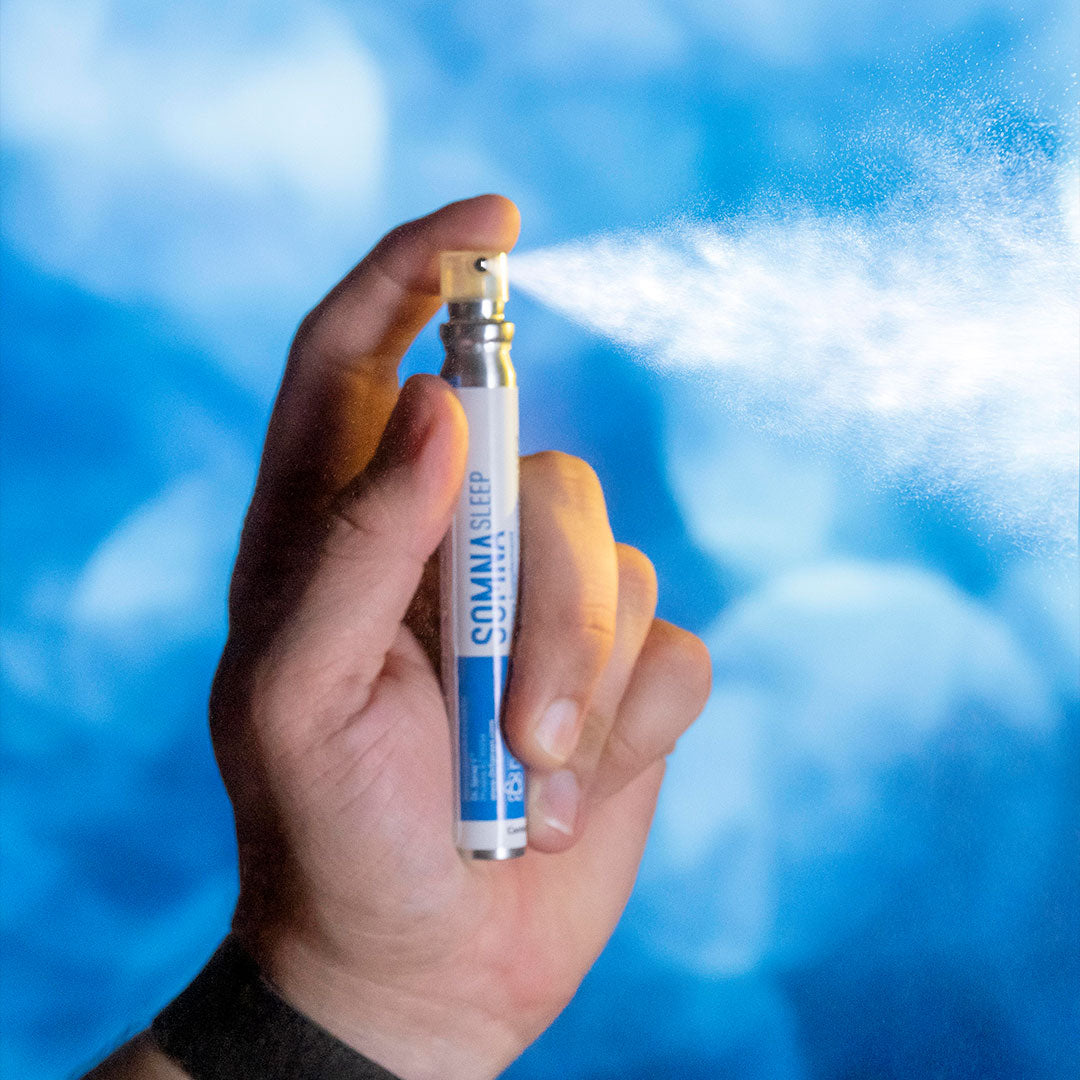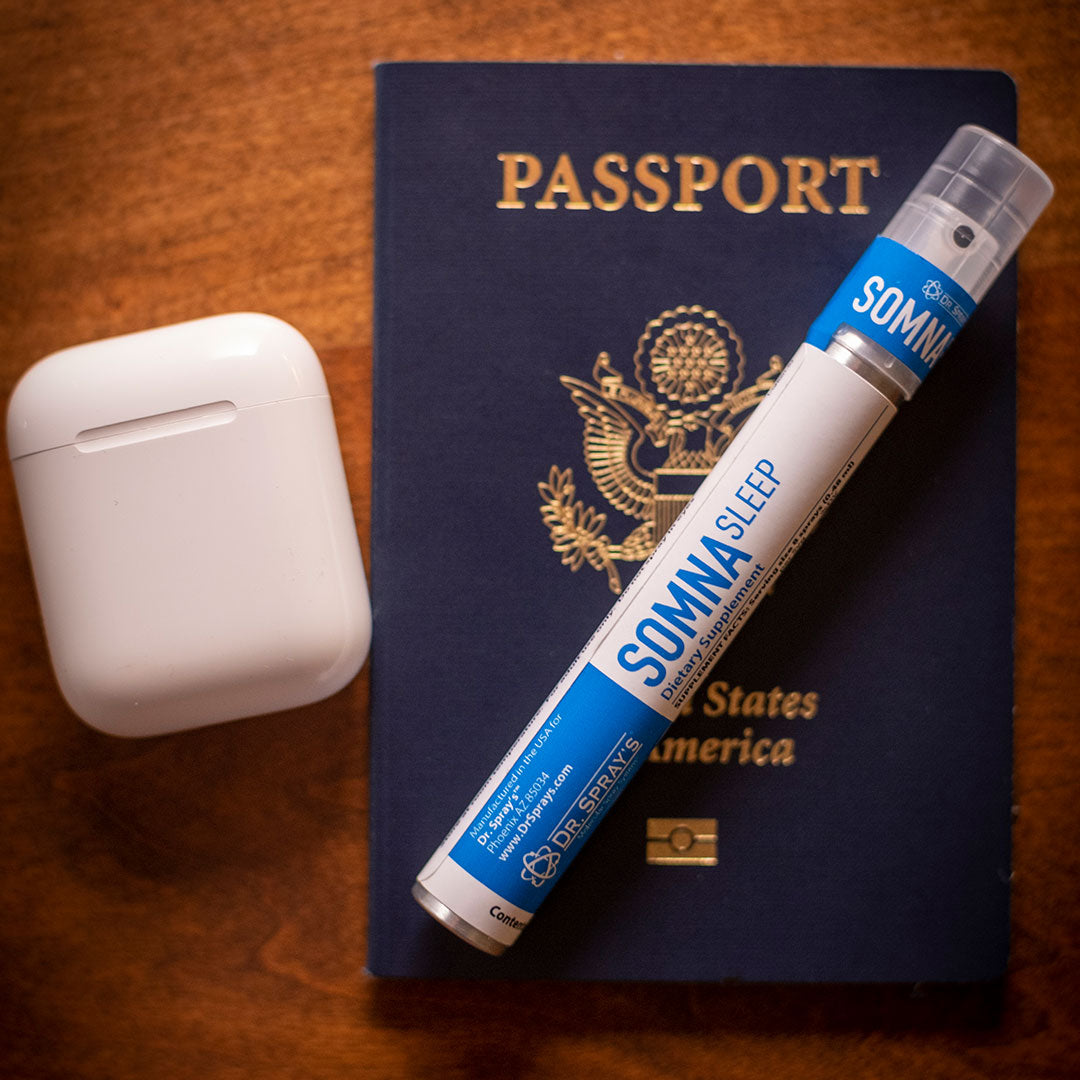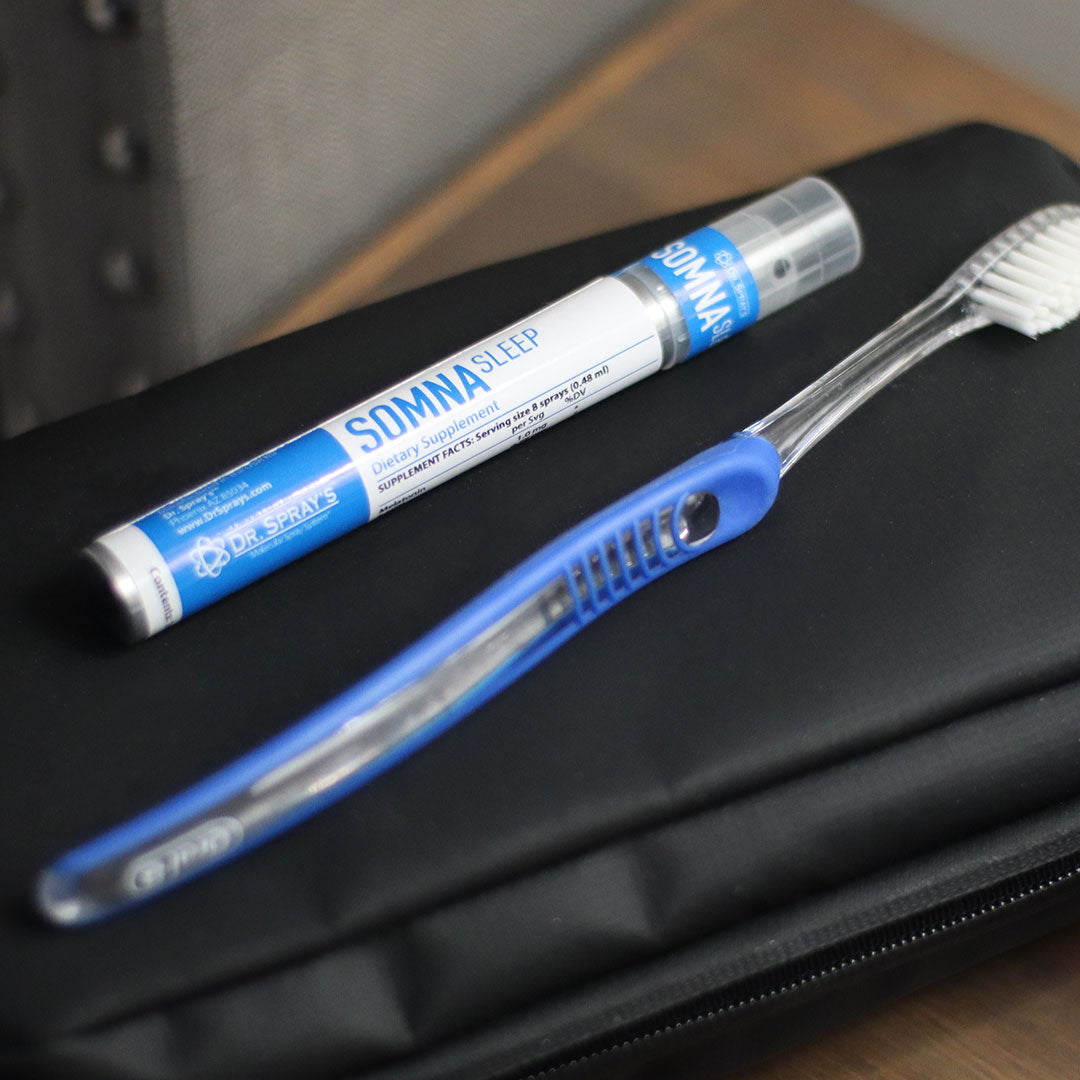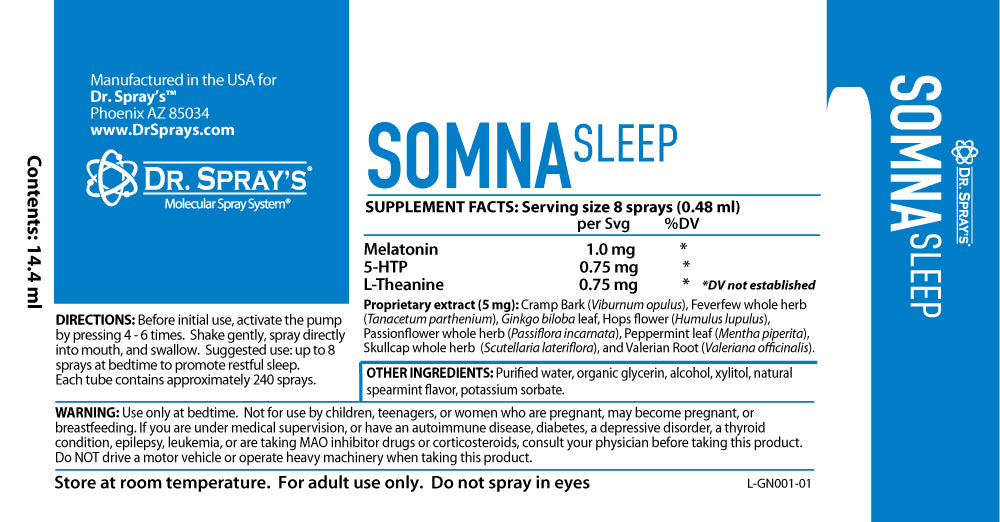It can be hard to determine the best sleeping pill for individual needs since no single option would be right for everyone. While over-the-counter (OTC) sleep aids can be effective in helping some people get to sleep, prescription medications may be much more beneficial for those that suffer from insomnia on a regular basis. The discussion below should help you understand what options are available and how to go about selecting the best sleeping pill for your own situation.
The most common types of sleep medication either suppress wakefulness or initiate sleepiness. Sedatives, such as benzodiazepines, barbiturates and non-benzodiazepines, are the most well-known class of sleep medications that act mainly by suppressing wakefulness. On the other hand, melatonin agonists, such as ramelteon and tasimelteon, act mainly by offering the body a signal that it’s time to sleep. Regardless of how they work though, all prescription sleeping pills come with some degree of risk.}
When trying to select the best sleeping pill for your particular needs, take some time to discuss the potential risks and benefits of each with your doctor. It is also important to remember that certain factors, such as age and other medical conditions, will make a difference in what type of drug is considered most suitable for you.
Overall, it is important to select a safe and effective sleeping pill for your specific needs. Research carefully and talk to your doctor about any potential side effects or interactions that may be involved so that you can get the best results from your medication.
In general, sleeping pills fall into two categories: sedatives and hypnotics. Sedatives are meant to relax your body and help you fall asleep. Hypnotics act directly on your brain to induce sleep.
Over-the-counter antihistamines such as Benadryl or Sominex are examples of sedatives that are commonly used as sleep aids. They can make you feel drowsy and are generally safe to use short-term.
Prescription sleeping pills such as Ambien or Sonata are examples of hypnotics. They work quickly and are generally safe when used occasionally and according to the directions of your doctor.
The type of sleeping pill that’s best for you depends on your individual needs and preferences. For instance, if you only have occasional insomnia, a short-acting over-the-counter sedative may be best. But if you have chronic insomnia, a prescription hypnotic may be more effective.
Whatever type of sleeping pill you choose, it’s important to talk with your doctor first before starting any kind of medication for sleep. Your doctor will also be able to recommend the best sleeping pill for your particular situation.
What Kind Of Pills Make You Go To Sleep?
The best sleeping pills help you get to sleep quickly and stay asleep for the entire night. They can be used to help treat occasional insomnia and chronic insomnia, depending on what your doctor prescribes. Keep in mind that although various medications are marketed as “sleep aids”, only certain kinds have been approved by the U.S. Food & Drug Administration (FDA) for the treatment of insomnia.
Common types of sleeping pills prescribed by doctors include benzodiazepines, non-benzodiazepines, barbiturates and antihistamines. Each type of pill works slightly differently and they all carry their own side effects. Some common medications that help induce sleep include temazepam (Restoril), zolpidem (Ambien), and eszopiclone (Lunesta).
Benzodiazepines have a longer lasting effect than most other types of medications, but are more likely to lead to addiction or abuse depending on the length of time that you take them. They also interact with other substances like alcohol which can increase risk of dangerous side effects.
Non-benzodiazepine sleeping tablets are considered safer alternatives that typically last four to six hours. They still carry some potential side-effects though and should never be mixed with alcohol or other substances. Options in this category include zaleplon (Sonata) and zolpidem.
Barbiturates are another option for combating serious cases of insomnia but they come with a long list of potential risks, including dependence or overdose. These medications should be avoided unless specifically prescribed – if you feel like you need more than one pill per night for sleep then it may be time to seek additional help from your doctor.
Finally, there are antihistamines which work by blocking the release of histamines in the body that can cause wakefulness due to allergies or colds. Antihistamines such as diphenhydramine (Benadryl) and doxylamine (Unisom SleepTabs) should only be taken when absolutely necessary since they can cause drowsiness during the day.
When making decisions about which kind of sleeping pill is best for you, it’s important to talk with your health care provider first to get all of the potential risks associated with each option. That way you can make an informed decision about what is right for your individual situation.
What Is A Good Pill To Take To Sleep?
Sleep plays a vital role in our health and well-being, but sometimes getting a good night’s rest can be easier said than done. For those who experience difficulty falling or staying asleep, the idea of taking a sleeping pill to help can be tempting. However, it is important to understand the potential side-effects and risks of taking medications for sleep before making any decisions.
What Are The Best Sleeping Pills?
If yousuffer from insomnia or have issues with falling and staying asleep, you may have considered trying sleeping pills to get restful sleep. When it comes to sleeping pills, however, there are different types of medications that can work for different people. It’s important to understand and consider the various factors involved when choosing the best sleeping pill.
The Different Types of Sleeping Pills
There are four general categories of sleeping pills: non-benzodiazepines; benzodiazepines; antidepressant sedative hypnotics; and suvorexant (trade name “Belsomra”). Non-benzodiazepines include Ambien, Lunesta, and Restoril. Benzodiazepines include Xanax and Valium. Antidepressants include Remeron, Trazodone, Desyrel, Pamelor, Aventyl and Elavil. Other drugs such as Nyquil, Benadryl (diphenhydramine), Tylenol PM (acetaminophen/diphenhydramine), herbal supplements such as melatonin, vitamin B12/exhaustion supplement naps as well as alcohol can also contribute to sleep quality and duration.
How To Determine The Best Sleeping Pill Option For You
It is important to take your preferences into account when selecting which type of sleeping pill is best for you. While benzodiazepines provide a deeper sleep with fewer side effects than non-benzodiazepines like Ambien or Lunesta, they can be habit formingand may interact with other medications or impair physical pathways. Antidepressants provide few adverse side effects but they require long-term use before showing effectiveness.
For those who want a more natural option without risking side effects or addiction, natural supplements like melatonin can help promote healthy moods and sleep patterns without the risk of drug interactions or impaired pathways associated with prescribed medications.
When To Talk To A Doctor About Sleeping Pills
Anyone experiencing difficulty sleeping should consider consulting their doctor about their symptoms. The doctor can evaluate the individual's medications, lifestyle factors, medical history and review any treatments that may be more suitable for them including prescription sleeping aids.
The best sleeping pill varies from person to person and there is no one-size-fits-all solution. It is important to discuss your individual situation with your doctor in order to determine the most appropriate type of sleeping aid for you.
Is It Ok To Take Sleeping Pills Every Night?
When you're struggling to get a good night's sleep, it can be tempting to turn to a sleeping pill every night. Whether it's over-the-counter or a prescription medication, there are potential pros and cons to relying on sleeping pills nightly.
There are several types of sleeping pills, including:
- Benzodiazepines (such as lorazepam)
- Non-benzodiazepines (such as zolpidem)
- Antihistamines (such as diphenhydramine)
These medications may help you fall asleep faster and stay asleep longer, but they should not be used for long-term management. Consult your doctor before taking sleeping pills every night; he or she can determine if the medication is safe for use and give advice on dosage.
Risks of Taking Sleeping Pills Long Term
Some possible risks of taking sleeping pills every night include:
- Resistance: Regular use of sleeping pills may cause the body to become “immune” to the effects of the medication. This means the pill will no longer help induce sleep.
- Habit forming : Because these substances generally have a calming effect on the mind and body, dependence can easily form.
- Disrupted sleep cycles :Regular consumption of sleeping pills could lead to insomnia in the long run. When your body starts expecting you to take the drug at regular intervals, it could be hard for you to go back to natural sleep cycles once you stop taking them
Alternatives To Sleeping Pills
For some people, alternative therapies are helpful in managing insomnia without long-term use of prescription medications. Some treatments that may help regulate sleep include:
- Stress reduction techniques : Mindfulness, yoga or deep-breathing exercises are all useful ways to reduce the stress that often leads to insomnia. li >
- Cognitive behavioural therapy :This form of therapy helps patients learn how to change their behaviour and thinking around sleep so they can develop more healthy habits. li >
-
Regular exercise : Working out regularly can reduce stress levels, making it easier for people to relax at night and get better quality rest. li >
ul >
< p > It’s important to speak with your doctor before considering any alternative therapies — this way, you can ensure that you’re getting the quality care you need for long-term treatment. p >
Is It Okay To Take Sleeping Pills?
Sleeping pills can be a great solution for people who struggle to get a good night's rest, but is it okay to take them? It is important to understand the potential risks and benefits, as well as which type of sleeping pill is the best.What are the Benefits of Taking a Sleeping Pill?
The primary benefit of taking a sleeping pill is that it can help you get a full night's sleep so that you wake up feeling refreshed and energised. This can help improve your productivity at work, reduce stress levels, and give you more energy throughout the day. Additionally, it can help to prevent insomnia in people who have difficulty falling asleep or waking up during the night.What are the Risks of Taking a Sleeping Pill?
The biggest risk associated with taking sleeping pills is the potential for dependency. If taken frequently, your body may start to rely on the pill in order to fall asleep. Additionally, taking sleeping pills may cause side effects such as confusion, dizziness, and impaired judgement.Which is the Best Sleeping Pill?
When choosing the best sleeping pill for you, it is important to consider both safety and effectiveness. Generally speaking, natural sleep aids such as melatonin are considered safe and effective without any serious side effects. More powerful prescription drugs may be necessary if natural remedies don’t work. In either case, it is important to speak with your doctor before starting any medication.Conclusion
Sleeping pills can be a great solution for those who struggle to get a good night’s rest. However, it is important to understand both the risks and benefits associated with these medications before making any decisions. Always speak with your doctor before trying any type of sleeping pill.Is It Harmful To Take Sleeping Pills Every Night?
When it comes to combating insomnia and improving sleep quality, there are a variety of treatments available. Sleeping pills are one of the most popular options that many people struggling with sleeping problems rely on. But is it safe to take sleeping pills every night?
Sleeping pills can be addictive, and even short-term use of some sleeping pills can lead to withdrawal symptoms and dizziness. To avoid these effects, you should always ask your doctor about the best sleeping pill for your condition and follow their instructions carefully.
Prescription sleeping pills, like Ambien or benzodiazepines, work by depressing the central nervous system to create an altered mental state that relaxes the body and encourages sleep. However, regular use of these types of sleeping pills can lead to dependence on them to fall asleep. Some might even experience tolerance, meaning they will need higher doses over time in order to sleep correctly.
To determine whether a particular sleeping pill is right for you, talk to your doctor. They can also suggest nonaddictive forms of therapy that may be more beneficial in aiding sleep without having severe side effects.What Factors Should You Consider Before Taking Sleeping Pills?
Before using any kind of medication, including sleeping pills, you should consider whether it is really necessary and evaluate any risks with your doctor. A few factors you should consider include:- Your medical history: Are you taking other medicines or have existing health issues that could interact with certain types of sleeping pills?
- The type of insomnia: Is it due to physical conditions or psychological problems? Depending on your diagnosis, different types of treatment might be better.
- Possible side effects: Always read the patient information leaflet carefully before taking any medication.
What Is The Best Sleeping Pill?
The best sleeping pill depends entirely on your individual needs and medical circumstances. Your doctor can advise you on which type would likely be most suitable for you. Popular over-the-counter medications include melatonin or diphenhydramine (e.g., Benadryl), while prescription drugs like zolpidem or zaleplon are also available.
.
Whatever type of sleeping pill you decide on, ensure that it does not interact with any other medications. Keep in mind that all types of sleeping pills should only be used for short-term relief from insomnia. If you find yourself needing them beyond a couple weeks, please consult with your doctor.Do Sleeping Pills Put You Sleep?
Sleeping pills and medications are among the most commonly used treatments for insomnia and other sleep disorders. Many people look to drugs as a quick fix to get them some quality shut-eye, but do these drugs actually put you to sleep or do they just mask the underlying problem?
The short answer is yes, sleeping pills do induce a state of unconsciousness that helps you fall asleep. However, it is important to understand that the effects of taking any form of medication – even natural options – can be complex and individualized. So before jumping into taking any sleeping pill on your own, it is essential to speak with your doctor to ensure that the drug is safe and effective for you.What Is The Best Sleep Aid?
For those who suffer from sleep disordered breathing, insomnia, or any other type of sleeping disorder, finding the best sleeping pill is essential. Fortunately, there are many different options available to those in need of a better night's sleep.Prescription Sleeping Pills
Prescription sleeping pills are one option and can be the most effective. These medications typically work by increasing levels of brain chemicals that lead to relaxation and improved sleep. Commonly prescribed prescription medication includes benzodiazepines such as Valium or Xanax, non-benzodiazepines like Ambien and Lunesta, antidepressants such as Prozac or Zoloft, and melatonin agonists such as Rozerem.Over the Counter Options
If you're not interested in taking a prescription medication, there are other over the counter options available as well. Diphenhydramine (Benadryl) and doxylamine succinate (Unisom) are both sedating antihistamines that are commonly used for short-term insomnia relief. There's also melatonin which is a hormone best known for guiding sleep-wake cycles in humans. Generally, the effects of melatonin last only 3-5 hours, so it’s not typically recommended as a long-term solution.Herbal Sleep Remedies
For those looking for a more natural approach to better sleep quality, many herbal supplements may be worth trying as well. For instance, chamomile and valerian can both help reduce mild insomnia symptoms. Others such as lavender, lemon balm, passionflower and magnolia bark may also be helpful in reducing sleep problems too.Non-Drug Sleep Aids
Sticking to good sleep hygiene habits is always encouraged first when using non-drug options for promoting better rest. Establishing calming rituals before bedtime like reading a book or taking a warm bath can be all that's needed to promote better sleep. Other non-medical treatments include bright light therapy or even cognitive behavioral therapy (CBT) which can help restructure your thinking to help improve your overall sleep health.Which Sleep Aid Is Right For You?
With so many different options available in terms of sleep aids, finding the right one for you can be difficult. The best thing to do is speak with your doctor or healthcare provider about what may work best for your unique needs.
Remember, the key to better sleeping habits is consistency and following through on your daily routine. Developing healthy habits such as eating more balanced meals earlier in the day and keeping regular exercise habits will go a long way toward helping you achieve great nights of restful slumber!What Is Commonly Prescribed For Sleeping?
When it comes to getting a good night's rest, the best sleeping pill can vary depending on your underlying cause of sleeplessness. Generally speaking, prescription medications used for sleep fall into three major categories: benzodiazepines, traditional sedative hypnotics, and non benzodiazepine hypnotics. These medications are typically prescribed for the short-term relief of insomnia and are available in both prescription and over-the-counter forms. While some of these drugs have been approved by the FDA for treating insomnia, they come with risks and should only be taken under the care of a doctor.What Is The Very Best Sleep Aid?
Are you struggling to get a good night's sleep? Do you feel worn down by the end of the day due to lack of restful sleep? The best sleeping pill may be just what you need to solve your sleep issue.
There are many different types of sleeping pills available, including over-the-counter and prescription medications. Over-the-counter sleeping pills are typically antihistamines such as Benadryl (diphenhydramine) or melatonin. Prescription medications are typically benzodiazepines such as Xanax (alprazolam), Ambien (zolpidem), or Lunesta (eszopiclone).
The type of medication that will work best for you can depend on a variety of factors, including side effects and desired results. For instance, benzodiazepines can help with short-term insomnia due to their sedating effect, but they can also have negative side effects and become habit forming if not taken as prescribed. Antihistamines can be helpful for those suffering from allergies, but since they don't directly target the sleeping part of your brain, they may not be effective in aiding with long-term insomnia.Risks Of Sleeping Pills
In addition to potential side effects like drowsiness and dizziness, there is also the risk of dependency and addiction if taking sleeping pills for an extended period of time. If a person stops taking sleeping pills suddenly, they could experience withdrawal symptoms such as anxiety and insomnia.Exploring Natural Sleep Aids
If you find yourself in need of sleep medications, looking into natural sleep aids might be an option for you. Natural sleep aids including relaxation techniques such as yoga and meditation, physical activity and exercise, diet changes including reducing caffeine intake, cognitive therapy, and utilizing certain homeopathic remedies can all help to improve your quality of sleep without risking dependency or addiction.Talk To Your Doctor About The Best Sleeping Pill
When deciding on which sleeping aid is best for your situation, it's important to consult with your health care provider before making any decisions. Your doctor will take into account any medical issues you might have as well as any current medications to come up with the best solution for you.What Is The Strongest Over-The-Counter Sleep?
Having trouble sleeping can be a real struggle and it can impact your daily life in multiple ways. If you've tried to get a good night's sleep but just can’t seem to manage on your own, you may be considering over-the-counter sleeping aids as an option. But which one is the best sleeping pill?
The most important thing to understand when looking for the best sleep aid is that there is no one-size-fits-all solution. Every person is unique and everyone's body chemistry is different, so what may work for one person may not necessarily work for another.
That being said, there are some over-the-counter sleeping pills that many people have had positive experiences with. For example, diphenhydramine, more commonly known under its brand name Benadryl, is an antihistamine used to treat allergies but can also act as an effective sleep aid because it relaxes people and serves as a mild sedative. It’s worth noting that this kind of pill should never be taken with alcohol or other drugs. Additionally, though Benadryl is one of the strongest over the counter sleeping pills available, research has found that people who take it routinely tend to develop a tolerance to its effects — meaning they’ll need to take more each time in order to feel its sleep-inducing effects
Tylenol p.m., which combines the pain reliever acetaminophen with a sedative ingredient called diphenhydramine, is also a common option for mild insomnia sufferers. While it does offer some relief from tight muscles and headaches (which can often accompany insomnia), Tylenol p.m., like Benadryl, tends to become less effective over time because of developing tolerances.
Another option that is becoming increasingly popular both over-the-counter and by prescription are “z drugs” (such as Zolpidem). Z drugs are meant for short-term use only — as studies have suggested taking them regularly can lead to physical dependence — and are thought to help people fall asleep faster and sleep more deeply than they might be able to otherwise.
So while there isn’t necessarily one best over-the-counter sleep aid on the market right now, there are options available depending on your needs. As with all medications, though, it’s important to consult with a doctor before taking any product (even if you plan on purchasing an OTC medication) in order to ensure you’re able to safely take it.What Is The Safest Sleep Aid To Take Every Night?
Every night, millions of people all over the world grapple with difficulty falling asleep or staying asleep. If you’re one of those people, you might be tempted to try a sleep aid to make getting restful sleep easier. However, navigating the market of sleep aids can be overwhelming. We’ve broken down the different types of sleeping pills to find what the safest and most effective option is for those needing help getting a good night’s sleep.Short-Term Solutions
Short-term sleeping medications such as benzodiazepines, zolpidem, zaleplon, and eszopiclone are useful in helping combat circumstances like jet-lag or sleeping through an occasional sleepless night. Sold under a variety of names including Ambien, Intermezzo, Sonata, and Lunesta, these medications should not be taken for extended periods of time due to their potential for becoming habit-forming. If used no more than a handful of times throughout any given month, these drugs can provide relief from acute sleepless nights.Long-Term Solutions
If you’re looking for an extended period solution to your slumber problems without the risk of it becoming habit-forming, one option is doxylamine succinate. It has fewer side effects than stronger sleeping medications that use benzodiazepines as their key ingredient. With any type of long-term medication for sleep disorders, it is always wise to speak with your healthcare provider as there may be other non-medication options that are available.Herbal Alternatives
Supplements and herbs such as valerian root and melatonin have been popular alternatives for treating insomnia in lieu of prescription strength drugs. While scientific studies regarding their effectiveness have been inconclusive or contradictory in some cases, many users have experienced positive results when taking them for short term use.
If you’re dealing with chronic or occasional sleeplessness it is best to consult with your doctor first before reaching into your medicine cabinet or going online to purchase something off the shelf. The right combination of diagnosis and treatment is key to getting the best night's sleep possible!What Are The Best Insomnia Sleep Aid?
For those looking for a good night's sleep, finding the best sleep aid can be difficult. There are many different types of sleeping pills available to help you achieve a restful and refreshing night's sleep. When choosing the right option, it is important to understand how each type of sleeping aid works, as well as its possible side effects.Benzodiazepines
Benzodiazepines, commonly known as Valium and Xanax, are among the oldest and most well-known sleep aids available. They work by calming the central nervous system, which helps induce sleep. However, due to their potentially addictive nature, these medications should only be used on an as-needed basis. If taken regularly for prolonged periods of time, benzodiazepines can lead to dependence.Non-benzodiazepine Drugs
There are also non-benzodiazepine drugs available that can help with insomnia. These include Ambien, Sonata and Lunesta. These medications work differently than benzodiazepines and they do not affect the central nervous system as much. As a result, they are not as potentially addictive as benzodiazepines and may be a better option for those with long-term insomnia.Over-the-Counter Medications
For those who suffer from mild insomnia or occasional sleeplessness, over-the-counter medications such as melatonin or diphenhydramine (brand name: Benadryl) can provide relief for some people. These medications are usually considered safe for short-term use and are also available without a prescription.Herbal Supplements
Herbal supplements such as chamomile and valerian root often tout their ability to help with insomnia. Studies have found that these herbal remedies can be effective in helping to improve the quality of sleep in some users. However, because there is no standard regulation of herbal supplements, it is best to speak with your doctor before trying any new remedy.What Is The Very Best Over-The-Counter Sleep Aid?
If you suffer from difficulty falling asleep or staying asleep, you may be considering the use of over-the-counter sleep aids as a way to improve your quality of sleep. While there is no one-size-fits-all solution to dealing with insomnia, trying out a few different options can help you find the best OTC sleep aid for you. Generally speaking, the best OTC sleep aid to use is something that will relax your body and mind, while also helping you to feel restless and ready for bed.1. Melatonin
One of the most popular and widely available OTC sleep aids is melatonin. It helps regulate your internal clock, so if you're fighting insomnia due to a disruption in your circadian rhythm (the body's natural 24-hour clock), this supplement may be a great option for you. Research suggests melatonin can also help people who are not experiencing disrupted circadian rhythms by improving their overall quality of sleep. Keep in mind that melatonin is not used as an immediate sedative - it works gradually to induce sleep.2. Valerian
Valerian is another common OTC sleep aid. This herb has been used to help people get better quality rest for hundreds of years and still remains popular today as an effective nonprescription remedy for occasional sleeplessness. Valerian may work by increasing your body's levels of gamma-aminobutyric acid (GABA). GABA is responsible for decreasing brain activity and therefore helping create calmness, relaxation, and sleepiness in the body.3. Passion Flower
Passion flower is yet another herbal remedy commonly used to alleviate occasional sleeplessness and can be taken as a tea or tincture form. The herb has traditionally been used to enhance relaxation before bedtime and while there are multiple active ingredients believed to be involved in producing passion flower's calming effects, it also contains components known as flavonoids (which have antioxidant properties) that may help reduce stress levels of the body and promote better quality sleeping.4. Magnesium Oxide
Magnesium oxide is another popular over-the-counter sleep aid but it does not work on its own like the other supplements discussed above do; it needs to be taken in combination with a valerian root extract which helps make magnesium oxide more effective at relieving insomnia symptoms. That said, research suggests that magnesium oxide might increase serotonin production (a neurotransmitter responsible for sending messages and regulating bodily processes such as sleep patterns) while also helping relax and soothe the muscles prior to falling asleep.Conclusion
What Is The Best Sleep Aid At Night?
While these four supplements are some of the best over-the-counter sleep aids available, keep in mind that everyone responds differently to different treatment options. As such, consulting with your physician to determine which OTC sleep aid might be best suited for treating your own insomnia would be best – especially if your insomnia persists or worsens after trying a certain option.
It is no secret that getting a good night's sleep can be hard. From stress, to an overactive mind, symptoms of a medical condition, or an uncomfortable sleeping environment, insomnia can be particularly difficult to manage. Many people find themselves reaching for sleep aids as a way to get the restful shut-eye they need, but it can be hard to know which one is right for you. That’s why it’s important to understand the different types of sleeping pills available and the benefits various types can provide.<

